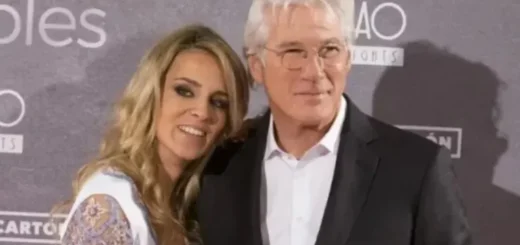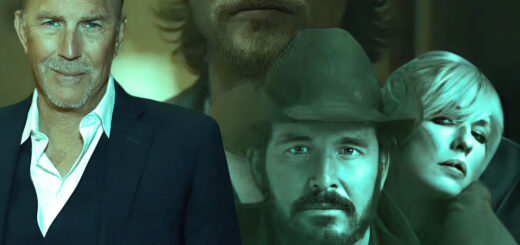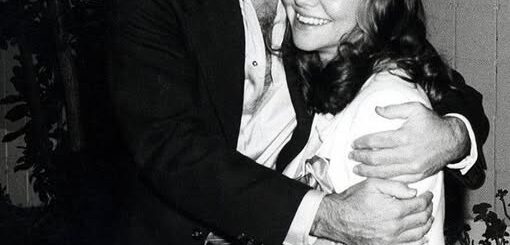“Celine Dion’s Sons Walk Her Down the Aisle of the Stage for Her First Show Since Diagnosis” The lights dimmed long before she appeared. Not for drama — but for reverence. For the first time in nearly four years, the world waited with held breath, hearts pounding in the dark, for a woman who had forgotten neither music nor love, even as her body battled to remember itself. Then the spotlight shifted — not to center stage, but to the far-left wing. And the crowd gasped.
Because there she was.
Celine Dion.
Dressed in soft silver, her frame fragile, her posture trembling —
and each of her sons holding one of her hands.
René-Charles on her right, tall and protective,
Nelson on her left,
Eddy a step behind, steadying her back —
three boys forming a shield around the woman who had once carried all of them.
The arena fell silent.
The silence of prayer.

THE WALK
It was not the walk of a star.
It was the walk of a mother leaning on her children.
A woman who had once commanded Las Vegas with sheer voice, now taking one careful step after another —
guided by the boys whose first steps she had once guided herself.
The aisle wasn’t an aisle at all —
it was the edge of the stage, lined with roses fans had left for her return.
Her sons never let go of her hands.
Not for a second.
René-Charles murmured something to her —
someone close to the stage later revealed it was:
“Take your time, Maman. We’re right here.”
When she reached the center, she paused.
The spotlight widened, painting her in warm gold.
Her shoulders rose on a shaky breath.
Then she leaned forward…
kissed each of her boys on the forehead…
and whispered something that the mic picked up with devastating clarity:
“Everything I ever was — began with them.”
The audience broke.
Not with applause.
But with tears.
:max_bytes(150000):strip_icc():focal(1005x582:1007x584)/celine-dion-kids-1-0bca00eee0bc4a8abc141e7dd1fb5c81.jpg)
THE MOMENT THAT STOPPED TIME
Celine let go of her sons’ hands only after they stepped behind her, forming a half-circle — not performers, not bodyguards, but family.
She touched her chest.
Closed her eyes.
And for a moment, she did nothing.
No music.
No orchestra.
No cue.
Just a woman standing in front of tens of thousands, trembling, but standing.
Then she lifted the microphone — both hands wrapped around it as if it were the last fragile piece of her old world — and whispered:
“I’m not the same Celine you remember…
but I’m still your Celine.”
The crowd erupted — not in cheers, but in a collective, aching sob.
FLASHBACK: WHAT BROUGHT HER HERE
Backstage earlier that night, Celine reportedly had trouble rising from her seat.
Her muscles stiffened, her legs weak from the strain of Stiff Person Syndrome, a disease that steals control from the body one inch at a time.
Her sons insisted on walking her to the stage.
A crew member later said:
“She didn’t argue. She just let them carry her heart for a little while.”
Before stepping out, she whispered to them:
“If Papa could see you now…”
And in that moment, the ghost of René Angélil felt present —
in their eyes,
their hands,
their devotion.
THE SONG THAT FOLLOWED
When she finally began to sing, it wasn’t one of the showstoppers.
Not “My Heart Will Go On.”
Not “The Power of Love.”
Not even “Because You Loved Me.”
She chose a different song.
Smaller.
Softer.
Personal.
A stripped-down version of “Flying On My Own.”
Her voice cracked on the first line.
The second.
But she didn’t hide.
She didn’t step back.
She gripped the mic tighter, and her sons stood behind her, ready if she faltered.
By the chorus, something shifted.
Her voice didn’t grow stronger —
her courage did.
And that was enough.
THE AUDIENCE
People in the front rows were sobbing uncontrollably.
Couples held hands.
Grown men wiped their faces with their sleeves.
A mother lifted her young daughter and whispered:
“That’s what strength looks like.”
The arena felt like a cathedral —
not because she was performing,
but because she was fighting.
THE CLIMAX — WHEN SHE ALMOST FELL
During the bridge, Celine’s legs began to shake visibly.
Her knees buckled.
Before the audience could react, René-Charles stepped forward and caught her elbow.
Eddy steadied her from behind.
Nelson moved the mic stand closer.
Celine took a breath that echoed through the speakers —
a breath half-pain, half-determination.
Then she placed one hand over René-Charles’s and whispered:
“Don’t worry. Maman’s okay.”
And she finished the song.
Every trembling note.
THE BOW
When the music ended, she didn’t bow.
Her sons did.
All three bowed for her, beside her, holding her so she wouldn’t fall.
Celine pressed a hand to her heart.
Her chin trembling.
Eyes glistening.
She tried to speak, but her voice cracked.
René-Charles whispered, “I’ve got you.”
She nodded.
Then she looked at the crowd and said:
“This isn’t a comeback.
This is gratitude.”
THE GOODNIGHT
As the lights dimmed, her sons escorted her offstage the same way they’d brought her on —
slowly, gently, never letting go.
At the curtain, she turned back toward the audience, lifted her hand, and mouthed:
“Thank you for waiting for me.”
And the crowd rose —
not in applause,
but in one long, trembling standing ovation that lasted almost five minutes.
EPILOGUE
Later that night, a backstage crew member posted anonymously:
“I’ve seen Celine perform at her strongest.
Tonight, I saw her at her bravest.”
And perhaps that is the legacy of the moment —
not the return of a superstar,
but the rise of a mother
held together by the three hearts she once carried inside her own.


